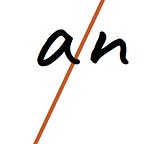what is it to be free in our collective aftermath
“Racial inequity creates wounds that we have to deal with in the systems.” — Jerry Tello
We’ve been waiting to exhale.
As we exhale, we’re not here to add more commentary, analysis, or noise to the election outcome (are we still waiting?). We wrote this Tuesday morning and we’ve been scooping ice cream straight from the tub since. #ben&jerrysforever
What we’ve learned from historical and personal experiences is that the pain and sadness creep in during a catastrophe, and hit deep in the aftermath as things quiet down into closure, settling in like one finale of many.
This aftermath is when our internal rumblings quake and unfurl, a release that is both needed and all consuming. Much like a natural (human-made) disaster, the isolation and despair come as we pick up our scattered parts, piecing them together while seeking directional sunlight for what’s next.
Perhaps we are still waiting to exhale.
The days leading up to November 3rd were flooded with mantras and permissions to normalize self-care and community care. Yes to all of that, and—
We want to know: what is your racial self-care, and what does it look like at the community level?
In the BIPOC spaces we’ve been holding and moving through, racial self-care means pushing our collective imaginations into movement, feeling both the limitations and possibilities within a system of white supremacy that relentlessly pushes back against us.
And it is in this tension that our imaginations expand to marginalize what once marginalized us. Our bodies find re-memories (for you, Toni) of past lives that survived the painful hopes of what it is to be free in our bones.
To be free —
Is that pull within us of having endured and having to endure more.
Is of knowing we did everything we could and can still do more.
Is of weightlessness and groundedness as a different kind of center.
Is of being selfish and selfless, together.
So what is it to be free when we look away from our own racial self-care?
What is racial self-care when to be free feels impossible, even within our own imaginations?
Our question isn’t what is freedom.
Our question is what is it to be free.
It is perhaps a declaration, and not a question at all; not a noun, but an act, a way of being, a way of seeing, a truth coming to life. It is to be. For BIPOC communities, this fact and act of being spins like a familiar soundtrack dusty with bittersweet re-memories of surviving — surviving, not merely survival.
We recently held space for this tension, this pulling, these opposing truths that reveal the pain and radical hope of racial healing for a Black Employee Resource Group in the tech sector. We asked, what is it to be free, and they answered with such depth — a gift to us as facilitators and to you in our collective and mutual liberation:
Being able to take a breath
Having no fear of being myself and being able to be myself around others and not be judged
Ability to be my authentic self (which includes being able to speak my truth without repercussions, guilt, self-incriminations)
Living in the moment doing something that brings you joy and energy, void of any concern of existential threats impacting your mental, physical, emotional health
Being present and not concerned about your surroundings as threatening
Not worrying about anything. Feeling like you can be your true self without fear.
I look at freedom through different lenses: spiritually, physically, and mentally. Spiritually, I feel free from this world’s expectations of me. Physically, I feel that freedom comes in waves, and is dependent on surroundings, boundaries, social constructs, people, groups, and work. Mentally, freedom comes in waves also, dependent on state of mind, attitude, understanding, empathy, and love that help the feeling of freedom.
Feeling the remembered pain in each other’s experiences is what transforms individual trauma into a collective responsibility with a shared and enduring vision of what is it to be free. Some might call this radical empathy. And as one of our participants said, that makes for a different kind of hope and possibility.
Our freedom is linked to our vote, certainly. But also know that to be free is our right, our dignity, and whoever our next President is, we push on.
So what is it to be free. How will you answer?
Originally published at https://and-now-collective.com on November 5, 2020.
